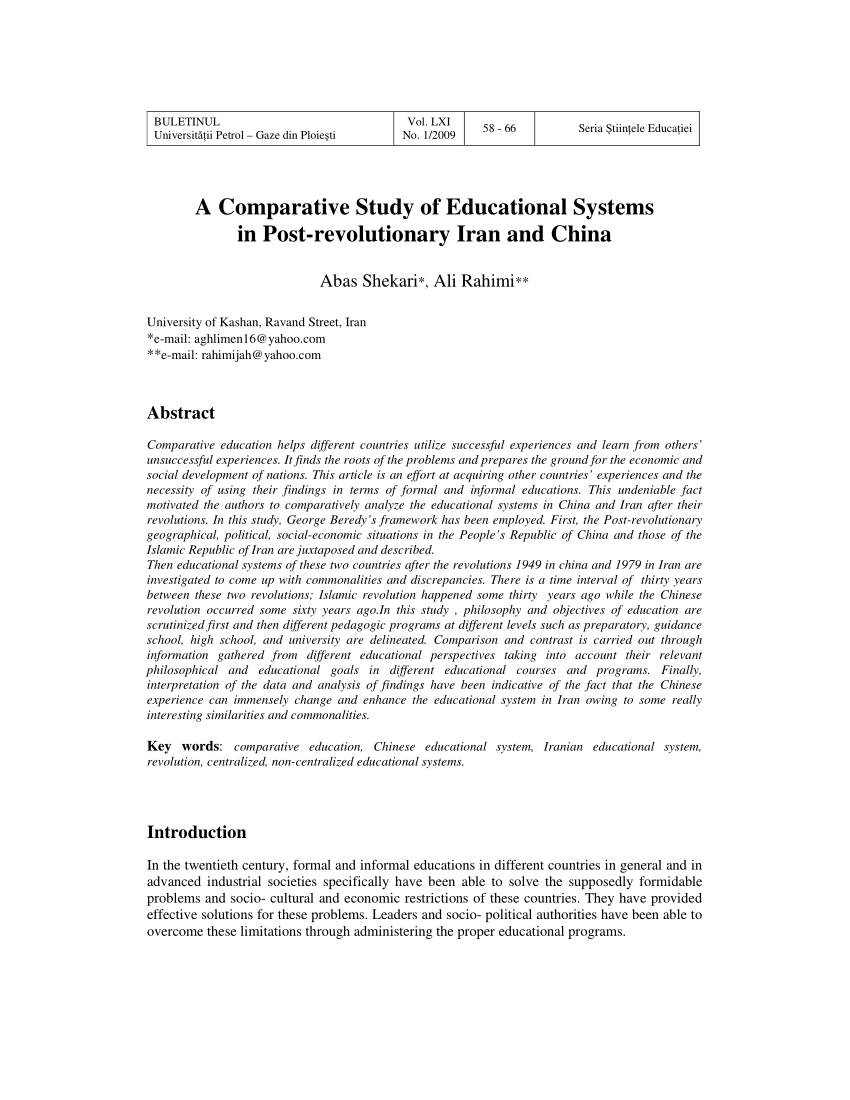Have you ever wondered how Suriname’s education system compares to that of other countries? Well, you’re in luck, because in this article we will be diving deep into the topic and exploring the key elements of Suriname’s education system in comparison to other countries. So, if you’re curious to learn more about this, keep on reading!
Suriname’s education system is a fascinating subject to explore. It combines elements from different educational models and places a strong emphasis on providing quality education to its citizens. In this comparative study, we will take a closer look at the curriculum, teaching methods, and student evaluation systems used in Suriname, as well as how they differ from those in other countries. By the end of this article, you will have a much better understanding of Suriname’s education system and be able to appreciate its unique characteristics. So, let’s dive right in and explore the world of education in Suriname!
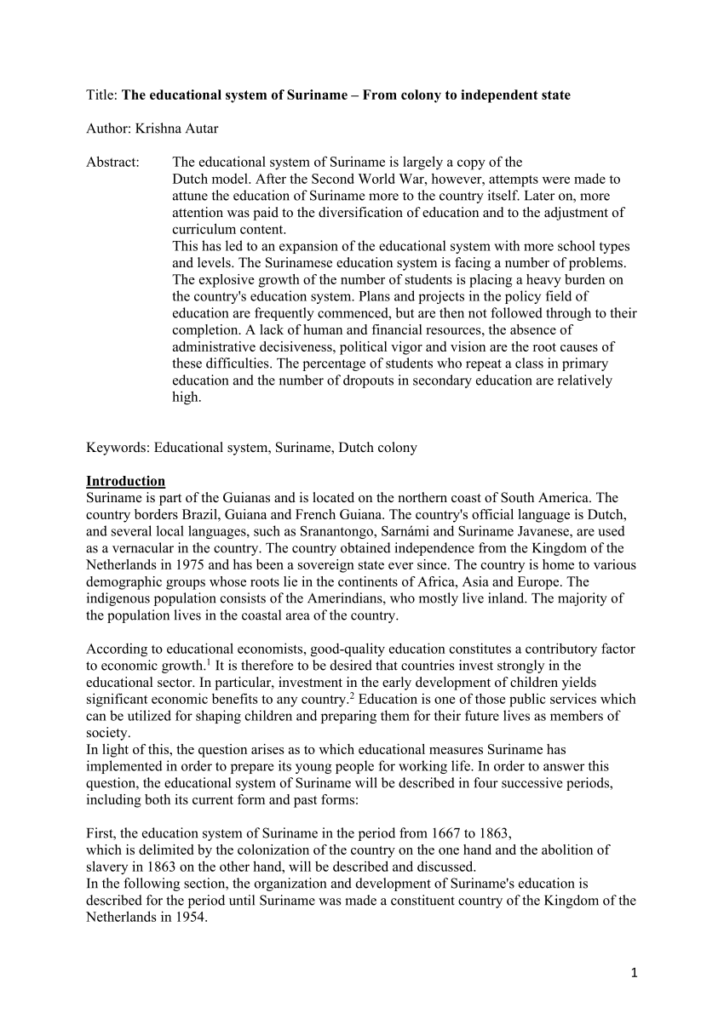
Overview of Suriname’s Education System
Suriname’s education system is an essential component of the country’s development and growth. It plays a pivotal role in shaping the future of Suriname’s youth and equipping them with the necessary knowledge and skills to succeed in the modern world. This article aims to provide a comprehensive understanding of Suriname’s education system by examining its history, structure, and key stakeholders, and comparing it with other education systems.
History of Suriname’s Education System
The history of Suriname’s education system can be traced back to the colonial era when the Dutch first introduced formal education in the country. During this period, education was primarily accessible to the elites and aimed at maintaining the Dutch influence in the colony. However, with the growing demand for education and the rise of independence movements, Suriname’s education system underwent significant changes.
In the post-colonial era, Suriname placed a strong emphasis on expanding access to education and achieving universal primary education. Efforts were made to develop a national curriculum and train teachers to cater to the diverse needs of the population. The country also took steps towards decentralization and community engagement in education decision-making processes.
Structure of Suriname’s Education System
Suriname’s education system is divided into different levels, each offering specific programs and qualifications. The system begins with primary education, which is compulsory and free for all children aged 6 to 12. Primary education equips students with foundational knowledge and skills across various subject areas.
After completing primary education, students transition to secondary education, which is divided into lower and upper levels. Lower secondary education focuses on building on the foundational knowledge acquired in primary school and introduces specialization in specific subject areas. Upper secondary education offers more specialized programs, preparing students for further education or entry into the workforce.
Technical and vocational education is also an integral part of Suriname’s education system. It provides students with practical skills and knowledge in various trades and professions, preparing them for employment opportunities in the country’s growing industries.
Higher education in Suriname consists of universities and colleges that offer degree programs in various fields of study. These institutions play a crucial role in producing skilled professionals and contributing to Suriname’s socioeconomic development.
Role of the Ministry of Education in Suriname
The Ministry of Education in Suriname is responsible for overseeing and regulating the country’s education system. It formulates policies, provides guidance to educational institutions, and allocates resources to ensure the effective functioning of the system. The Ministry also promotes quality assurance and accreditation processes to maintain high standards in education.
Additionally, the Ministry of Education collaborates with other stakeholders, including teachers, parents, and communities, to develop and implement educational initiatives. It promotes partnerships with international organizations and institutions to enhance cooperation and exchange of knowledge in the field of education.
Primary Education in Suriname
Curriculum and subjects in primary schools
In Suriname, primary education focuses on the holistic development of students by providing a well-rounded curriculum. The curriculum includes core subjects such as language, mathematics, social studies, and science, while also incorporating arts, physical education, and local culture. This approach aims to develop students’ cognitive, social, emotional, and physical skills.
The curriculum is designed to promote active learning and critical thinking, encouraging students to explore and analyze ideas independently. It also emphasizes the importance of values, ethics, and citizenship education, fostering a sense of social responsibility among students.
Teaching methods and pedagogy in primary schools
Primary schools in Suriname employ various teaching methods and pedagogical approaches to ensure effective learning outcomes. Teachers use a combination of lectures, classroom discussions, group work, and hands-on activities to engage students and cater to their diverse learning styles.
The integration of technology in teaching and learning is also gaining prominence in Suriname’s primary education. Schools are incorporating digital resources, interactive whiteboards, and educational software to enhance instructional delivery and promote digital literacy among students.
Furthermore, primary schools in Suriname place a strong emphasis on student-centered learning. Teachers act as facilitators, guiding students in their learning journey and encouraging active participation. This approach fosters a sense of ownership and responsibility among students, promoting lifelong learning skills.
Issues and challenges in primary education in Suriname
Despite progress in primary education, Suriname faces several challenges in ensuring quality education for all students. One of the main issues is the disparity in access to education, particularly in remote and underserved regions. Limited infrastructure, inadequate transportation facilities, and socio-economic factors contribute to the unequal distribution of educational resources.
Another challenge is the shortage of qualified teachers, particularly in rural areas. This shortage impacts the quality of education and hinders student learning outcomes. Efforts are being made to improve teacher training and retention, as well as attract more individuals to the teaching profession.
Furthermore, there is a need to enhance the curriculum to address the changing needs of students in the 21st century. The inclusion of STEM (science, technology, engineering, and mathematics) subjects and digital literacy is crucial to prepare students for the evolving job market and technological advancements.
To address these challenges, Suriname is implementing various initiatives, including infrastructure development, teacher training programs, and curriculum reforms. Collaboration with international partners and organizations is also vital in supporting these efforts.
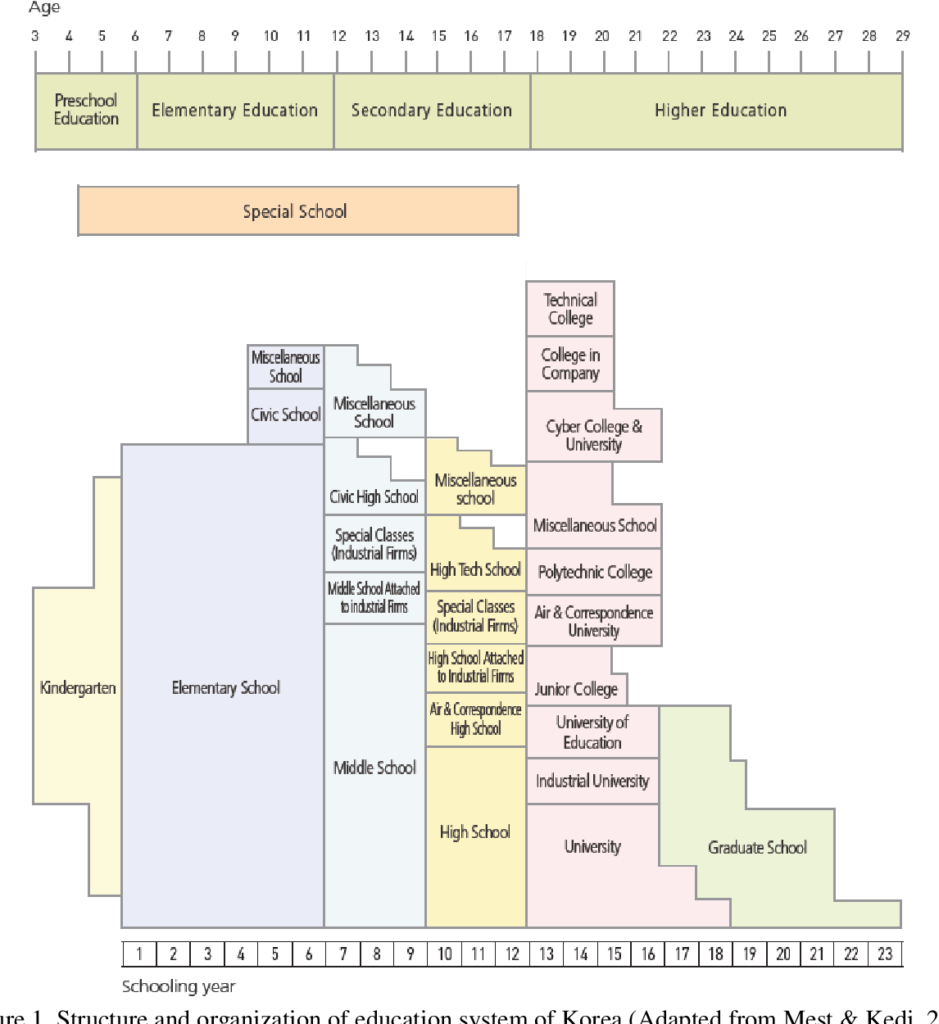
Secondary Education in Suriname
Different types of secondary schools in Suriname
Suriname offers different types of secondary schools to cater to the diverse needs and interests of students. These include general secondary education schools, vocational schools, and technical schools.
General secondary education schools focus on providing a broad-based education and preparing students for further studies at the tertiary level. Students in these schools are exposed to a wide range of subjects, including language, mathematics, science, social sciences, and the arts.
Vocational schools offer specialized programs that combine academic instruction with practical training in specific trades and professions. These schools prepare students for immediate entry into the workforce and provide them with the necessary skills and knowledge in fields such as agriculture, hospitality, and business.
Technical schools, on the other hand, focus on preparing students for careers in technical fields, such as engineering, construction, and mechanics. These schools provide hands-on training, allowing students to develop practical skills and gain industry-specific knowledge.
Curriculum offerings in secondary schools
The curriculum in Suriname’s secondary schools is designed to provide students with a comprehensive education that promotes critical thinking, problem-solving, and creativity. The curriculum includes core subjects such as mathematics, language, science, and social studies, along with elective subjects that allow students to explore their interests.
In recent years, Suriname has also introduced entrepreneurship education in secondary schools to foster an entrepreneurial mindset among students. This initiative aims to equip students with the necessary skills to become innovative and enterprising individuals, contributing to the country’s economic development.
Standardized tests and assessments in secondary education
Suriname utilizes standardized tests and assessments to evaluate student performance and monitor the effectiveness of the education system. The Suriname National Examination Board is responsible for conducting these assessments, which include both written examinations and practical assignments.
These assessments play a crucial role in determining student progression from one grade level to another and for entrance into tertiary education institutions. They also provide valuable data for educational planning and policy-making.
Technical and Vocational Education in Suriname
Overview of technical and vocational education in Suriname
Technical and vocational education plays a vital role in Suriname’s education system by providing students with practical skills and knowledge that are essential for employment. Technical and vocational education institutions offer a range of programs in various trades and professions, including agriculture, construction, automotive, healthcare, and hospitality.
These programs combine classroom instruction with practical training, ensuring that students acquire the necessary hands-on skills and industry-specific knowledge. Technical and vocational education is highly valued in Suriname, as it equips students with the tools they need to enter the workforce and contribute to the country’s economic development.
Skills and trades taught in technical and vocational schools
Technical and vocational schools in Suriname offer a wide range of programs to suit different interests and career aspirations. Some of the skills and trades taught in these schools include electrical installation, plumbing, carpentry, welding, agricultural techniques, culinary arts, nursing, and tourism.
The curriculum of technical and vocational schools is designed in consultation with industry experts and employers to ensure that students develop the skills that are in demand in the job market. This approach increases the employability of graduates and contributes to reducing unemployment rates in the country.
Employment opportunities and prospects for graduates
Technical and vocational education in Suriname opens up a plethora of employment opportunities for graduates. The skills acquired through these programs are highly sought after by industries and businesses, both within Suriname and internationally. Graduates can find employment in various sectors, such as construction, agriculture, healthcare, tourism, and hospitality.
In addition to traditional employment, technical and vocational education also provides graduates with the necessary skills and knowledge to start their own businesses. Entrepreneurship is promoted within technical and vocational schools, enabling students to become self-reliant and contribute to the country’s economy.
The potential for further education and professional development is also available for technical and vocational education graduates. They can pursue advanced studies in their chosen field or acquire additional certifications, enhancing their career prospects and upward mobility.
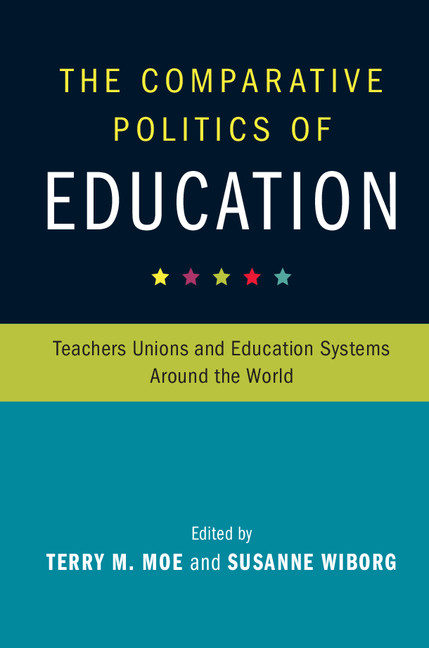
Higher Education in Suriname
Universities and colleges in Suriname
Suriname has several universities and colleges that offer a wide range of degree programs to cater to the educational needs of its population. The Anton de Kom University of Suriname is the country’s national university and offers undergraduate and postgraduate programs in various disciplines, including law, medicine, engineering, economics, and social sciences.
Apart from the national university, Suriname also has private universities and colleges that provide specialized education in fields such as business, technology, healthcare, and arts. These institutions play a crucial role in expanding access to higher education and offering diverse study options to students.
Fields of study and degree programs offered
Higher education institutions in Suriname offer degree programs in a range of disciplines to meet the demand for skilled professionals in various sectors. Some of the popular fields of study include medicine, law, engineering, business administration, environmental sciences, education, and arts.
The curriculum of these programs is designed to provide students with a strong theoretical foundation combined with practical training and research opportunities. The emphasis is on critical thinking, problem-solving, and lifelong learning skills, preparing students for successful careers and contributing to Suriname’s socioeconomic development.
Quality assurance and accreditation in higher education
The quality of higher education in Suriname is ensured through quality assurance and accreditation processes. The National Accreditation Council is responsible for accrediting higher education institutions and programs, ensuring that they meet the required standards of quality and excellence.
Accreditation is a rigorous process that evaluates various aspects of an institution, such as faculty qualifications, curriculum design, facilities, student support services, and student learning outcomes. Accredited institutions are regularly monitored to maintain the quality of education and to foster continuous improvement.
The accreditation process also promotes international recognition and mobility of Surinamese graduates, allowing them to pursue further studies or seek employment opportunities worldwide.
Access and Equity in Suriname’s Education System
Gaps in access to education across regions and socioeconomic backgrounds
Despite efforts to promote access to education in Suriname, there are still significant gaps in access across different regions and socioeconomic backgrounds. Remote and rural areas face infrastructure challenges, including a lack of schools, transportation facilities, and qualified teachers. This hampers the ability of children in these areas to attend school regularly and receive quality education.
Socioeconomic factors also contribute to disparities in access to education. Families from lower-income backgrounds may struggle to afford school fees, uniforms, and learning materials. This makes it difficult for children from disadvantaged families to access education and hinders their chances of academic success.
Efforts are being made to address these gaps and ensure equal access to education for all children in Suriname. Infrastructure development projects in remote areas, scholarships and financial assistance programs for disadvantaged students, and teacher recruitment initiatives are some of the measures taken to promote equality in education.
Efforts to promote inclusivity and equal opportunities
Suriname recognizes the importance of inclusivity and equal opportunities in education. The government, in collaboration with various stakeholders, has implemented initiatives to ensure that children from marginalized groups, including indigenous communities and children with disabilities, have equal access to education.
Special education programs and inclusive classrooms have been established to provide support and accommodations for students with disabilities, enabling them to participate fully in the educational process. Efforts are also being made to incorporate indigenous knowledge and culture into the curriculum, promoting inclusivity and respect for diversity.
To further promote equal opportunities, Suriname has implemented scholarships and financial assistance programs to support students from low-income families. These programs aim to reduce financial barriers and provide opportunities for students to pursue higher education.
Barriers to access and strategies for overcoming them
Several barriers hinder access to education in Suriname, including geographical distance, socioeconomic factors, and cultural norms. To overcome these barriers, a multi-faceted approach is required, involving various stakeholders and implementing targeted interventions.
Infrastructure development in remote areas, including the construction of schools and transportation facilities, is essential to improving access. This ensures that children living in these areas can attend school regularly and receive quality education.
Financial assistance programs, scholarships, and fee waivers can help alleviate the financial burden on families and promote equal opportunities. By providing support to children from low-income backgrounds, these programs open doors for them to pursue education and fulfill their potential.
Collaboration with communities and parents is also vital in overcoming barriers to access. Engaging parents in the education process and raising awareness about the benefits of education can contribute to increased enrollment and retention rates.
Furthermore, cultural sensitivity and the inclusion of diverse perspectives in the curriculum can promote inclusivity and enable students from different backgrounds to see themselves represented in the educational content.
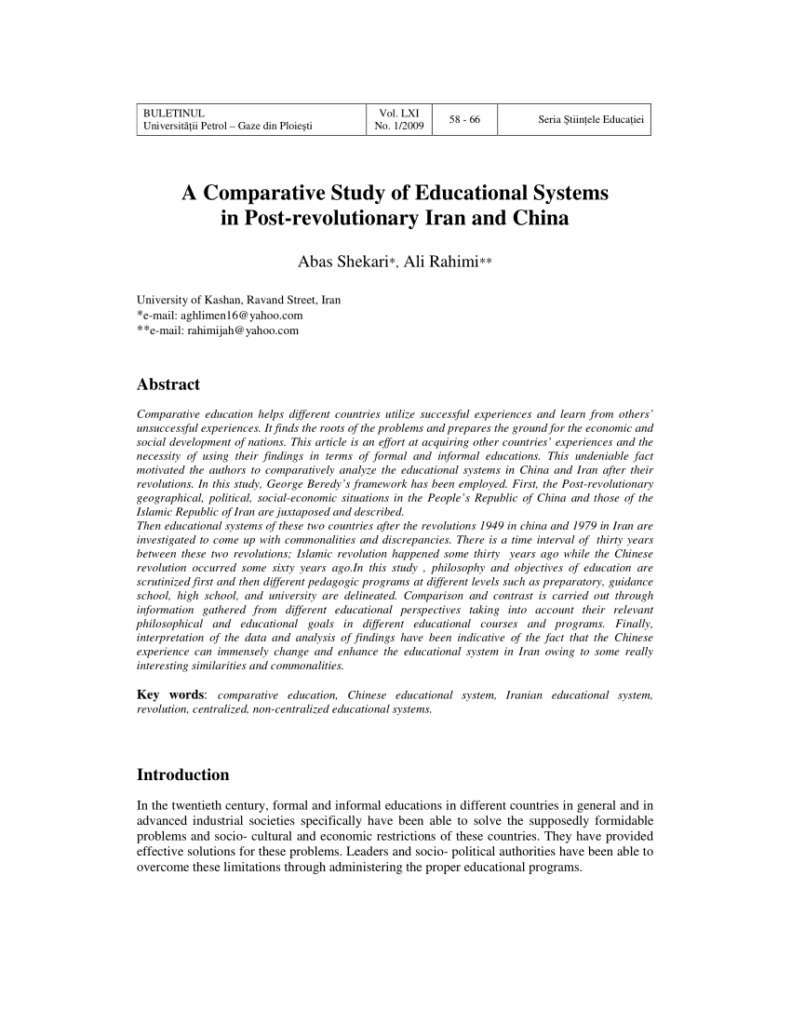
Teacher Training and Professional Development in Suriname
Pre-service teacher education programs
Suriname recognizes the importance of having well-trained and qualified teachers in delivering quality education. Pre-service teacher education programs are offered by teacher training institutes and universities to prepare aspiring teachers for their careers.
These programs combine theoretical knowledge with practical experience, equipping future teachers with pedagogical skills, subject-specific knowledge, and classroom management techniques. The curriculum of these programs emphasizes the development of critical thinking, problem-solving, and communication skills, enabling teachers to effectively engage with students and facilitate their learning.
Pre-service teacher education programs also focus on fostering a commitment to lifelong learning and professional development among prospective teachers. This ensures that teachers stay abreast of the latest research and best practices in education and continuously improve their teaching skills.
In-service training and professional development opportunities
In addition to pre-service education, Suriname places significant emphasis on in-service training and professional development for teachers. These opportunities enable teachers to enhance their pedagogical skills, learn about new teaching methodologies, and become familiar with the latest educational technologies.
The Ministry of Education, in collaboration with educational institutions and organizations, offers various professional development programs and workshops for teachers. These programs cover a wide range of topics, including curriculum development, student assessment, classroom management, and the integration of technology in teaching and learning.
Furthermore, Suriname encourages participation in international training programs and conferences to expose teachers to global best practices and innovative approaches in education. This exchange of knowledge and experience enhances the quality of teaching and learning in Suriname and contributes to ongoing improvements in the education system.
Challenges and initiatives in enhancing teacher quality
Despite ongoing efforts to enhance teacher quality in Suriname, several challenges persist. One of the main challenges is the shortage of qualified teachers, particularly in remote and underserved areas. This shortage impacts the student-teacher ratio and hinders the quality of education.
To address this challenge, Suriname is implementing recruitment initiatives to attract more individuals to the teaching profession, particularly in high-demand subject areas such as math and science. Scholarships and financial incentives are offered to students pursuing teacher education programs, encouraging them to enter the teaching profession upon graduation.
Another challenge is the need to continuously update and align teacher training programs with evolving educational needs. Suriname is working toward enhancing the curriculum of teacher education programs to incorporate 21st-century teaching skills, digital literacy, and innovative teaching methodologies.
Furthermore, the implementation of a comprehensive teacher evaluation system is being explored to assess teacher performance and provide targeted support and professional development opportunities. This system aims to promote accountability and ensure that teachers receive the necessary support to enhance their teaching skills.
By addressing these challenges and providing ongoing support for teacher training and professional development, Suriname aims to improve teacher quality and ultimately enhance student learning outcomes.
ICT Integration in Suriname’s Education System
Role of technology in teaching and learning
Suriname recognizes the transformative potential of technology in education and has made efforts to integrate information and communication technology (ICT) into its education system. The use of technology in teaching and learning enhances student engagement, promotes active learning, and prepares students for the digital age.
ICT tools such as computers, laptops, tablets, and interactive whiteboards are increasingly being used in Suriname’s classrooms. These tools provide access to a wide range of educational resources, including online textbooks, multimedia content, and interactive learning platforms.
Technology also enables distance learning and remote education, particularly in areas with limited access to traditional educational facilities. Virtual classrooms, online courses, and video conferencing platforms have become valuable tools in expanding access to education and promoting lifelong learning opportunities.
Initiatives to promote digital literacy and ICT skills
Suriname has implemented several initiatives to promote digital literacy and ICT skills among students and teachers. The Ministry of Education has provided training programs and workshops to equip teachers with the necessary knowledge and skills to integrate technology into their teaching practices.
Additionally, schools have initiated computer literacy programs and ICT courses, enabling students to develop essential digital skills. These programs teach basic computer operations, internet navigation, digital etiquette, and the use of productivity tools.
To enhance access to technology, Suriname has implemented infrastructure development projects, including the establishment of computer labs and the provision of internet connectivity in schools. This ensures that all students have the opportunity to develop digital literacy skills and participate fully in the digital age.
Obstacles and future prospects of ICT integration
Despite progress in ICT integration, several obstacles hinder its full implementation in Suriname’s education system. Limited access to technology in some regions, particularly in rural and remote areas, hampers the widespread use of ICT tools. Infrastructure development and investment in technology resources are critical to overcoming this barrier.
Another challenge is ensuring the availability of relevant and high-quality digital content for educational purposes. Suriname is working towards developing a comprehensive digital content repository that aligns with the national curriculum and promotes effective digital teaching and learning practices.
Teacher training remains a key priority, as educators need to be proficient in using technology and incorporating it into their lesson plans effectively. Continuous professional development programs and ongoing support are vital in equipping teachers with the necessary skills and confidence to embrace ICT integration.
The future prospects of ICT integration in Suriname’s education system are promising. The digital transformation presents opportunities for personalized learning, adaptive assessments, and global collaboration. By leveraging technology, Suriname aims to equip students with the necessary digital skills, foster innovation, and prepare them for the challenges of the 21st century.
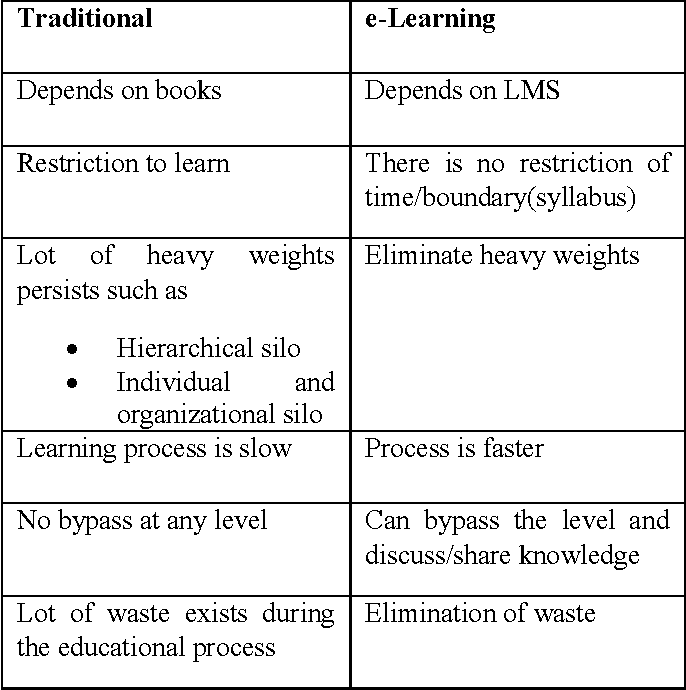
Education Policies and Reforms in Suriname
Government initiatives and policies impacting education
The Surinamese government has implemented various initiatives and policies to improve the quality of education and enhance the country’s education system. These initiatives are guided by the National Education Plan and the Education Sector Development Plan, which set out the country’s long-term educational goals and strategies.
One notable initiative is the expansion of early childhood education. Suriname recognizes the importance of early childhood development in laying the foundation for lifelong learning and has invested in the establishment of pre-primary schools and daycare centers.
Curriculum reforms have also been a focus of Suriname’s education policies. Efforts have been made to update and align the curriculum with the needs of the 21st century, incorporating essential skills such as critical thinking, creativity, collaboration, and digital literacy.
The government has also prioritized the improvement of school infrastructure and facilities. Infrastructure development projects have been initiated to construct and renovate schools, provide adequate classrooms and learning spaces, and ensure a conducive environment for teaching and learning.
Curriculum revisions and updates
Suriname is committed to revising and updating the curriculum to ensure its relevance and effectiveness. The Ministry of Education collaborates with educational experts, teachers, and other stakeholders to review and revise the curriculum periodically.
Curriculum revisions are guided by research and best practices in education, as well as the changing needs of Suriname’s society and economy. The inclusion of STEM subjects, entrepreneurship education, and digital literacy are examples of recent curriculum updates.
These revisions also aim to incorporate local culture, history, and values into the curriculum, reflecting Suriname’s cultural diversity and promoting a sense of belonging among students. The Ministry of Education recognizes the importance of culturally relevant education in fostering a strong national identity and pride.
The curriculum updates are aligned with international benchmarks and standards to ensure that Surinamese students are equipped with the necessary knowledge and skills to compete in the global arena.
Current and upcoming reforms in education
Suriname is currently undertaking significant reforms in its education system to address ongoing challenges and improve student outcomes. Some of the key reforms include the strengthening of teacher training programs, the enhancement of assessment and evaluation practices, and the introduction of inclusive education practices.
Teacher training reforms focus on improving the quality of pre-service education and enhancing in-service training and professional development opportunities. These reforms aim to attract more individuals to the teaching profession, ensure the availability of qualified teachers, and enhance teaching practices.
Assessment and evaluation reforms aim to promote a comprehensive and holistic approach to student assessment. Suriname is exploring the implementation of formative assessments, project-based assessments, and alternative forms of assessment to capture a student’s individual strengths and achievements.
Inclusive education reforms emphasize the importance of providing quality education to students with disabilities and special educational needs. Suriname is working towards creating inclusive classrooms, integrating students with disabilities into mainstream education, and providing necessary support and accommodations.
These reforms are part of a broader vision to create an education system that fosters inclusive and equitable access, promotes lifelong learning, and prepares students for the challenges and opportunities of the future.
Parental Involvement and Community Engagement
Importance of parental involvement in education
Parental involvement plays a crucial role in the success and development of students in Suriname’s education system. Research suggests that when parents are actively engaged in their children’s education, students are more likely to perform better academically, have higher self-esteem, and have improved social and emotional well-being.
Suriname recognizes the importance of parental involvement and encourages parents to take an active role in their children’s education. Parents are encouraged to participate in school activities, attend parent-teacher meetings, and support their children’s learning at home.
School-community collaborations and partnerships
Collaborations and partnerships between schools and communities are essential for creating a conducive learning environment and supporting student development. Suriname actively promotes school-community collaborations to enhance the educational experiences of students.
These collaborations involve local businesses, community organizations, and non-governmental organizations. They provide opportunities for students to engage in real-world experiences, internships, and community service, fostering a sense of social responsibility and civic engagement.
Schools in Suriname also work closely with parents and guardians to ensure that the home-school connection is strong. Regular communication channels are established to keep parents informed about their children’s progress, school events, and educational initiatives. Parents are encouraged to provide feedback and share their perspectives to enhance the quality of education.
Promoting a culture of engagement and participation
Suriname aims to create a culture of engagement and participation by involving all stakeholders in decision-making processes. The Ministry of Education actively seeks input from parents, teachers, students, and community members to shape educational policies and initiatives.
Parent and community representatives are included in educational committees and advisory boards, providing their perspectives and insights into the direction of the education system. This participatory approach ensures that the voices of all stakeholders are heard and that decisions are made with the best interests of students in mind.
Suriname also encourages student participation in school decision-making processes through student councils and other student-led initiatives. This promotes a sense of ownership and responsibility among students, empowering them to contribute to the development of their schools and communities.
By fostering a culture of engagement and participation, Suriname aims to create a supportive and inclusive educational environment that promotes the holistic development of students and prepares them for active citizenship.
International Comparisons and Benchmarking
Comparative analysis with other education systems
Suriname recognizes the importance of international comparisons and benchmarking to evaluate its education system and identify areas for improvement. By comparing its system with those of other countries, Suriname can gain valuable insights into best practices, innovation, and successful policies.
Suriname is engaged in international assessments and studies, such as the Programme for International Student Assessment (PISA) and the Trends in International Mathematics and Science Study (TIMSS). These assessments provide data on student performance across various domains and allow Suriname to assess its standing in relation to other countries.
The comparative analysis reveals strengths and weaknesses in Suriname’s education system and helps identify areas where further improvements and reforms are needed. It enables the Ministry of Education to focus on evidence-based policy-making and ensure that Surinamese students are well-prepared to meet global standards.
Participation in international assessments and studies
Suriname actively participates in international assessments and studies to monitor its educational progress and benchmark its performance. These assessments involve testing students’ knowledge and skills in various subject areas, allowing for a comparison of student performance on a global scale.
Participating in international assessments provides Suriname with valuable data on its strengths and weaknesses. It helps identify areas where interventions and reforms are necessary, enabling the Ministry of Education to tailor its strategies accordingly.
Suriname also benefits from international studies by gaining insights into innovative teaching practices, effective educational policies, and successful reforms implemented in other countries. This knowledge sharing contributes to ongoing improvements in Suriname’s education system.
Lessons learned and areas for improvement
International comparisons and benchmarking have highlighted some valuable lessons for Suriname’s education system. Suriname has recognized the importance of improving teacher quality, enhancing curriculum relevance, and expanding access to education.
Lessons learned from countries with successful education systems have emphasized the need for continuous professional development for teachers, focusing on pedagogical skills and innovative teaching practices. Curriculum revisions have been guided by international best practices and recommendations to ensure alignment with global benchmarks.
Suriname has also recognized the importance of ensuring equal access to education for all students, regardless of their socioeconomic backgrounds or geographic locations. Lessons learned from other countries have emphasized the importance of targeted interventions and support for disadvantaged students to reduce gaps in learning outcomes.
By incorporating these lessons and implementing evidence-based strategies, Suriname aims to continuously improve its education system and provide quality education for all students.
Education Funding and Resource Allocation
Allocation of government funds for education
Suriname recognizes the importance of adequate funding for education and has taken steps to allocate government funds to support the education system. The government allocates a significant portion of its annual budget to education, reflecting its commitment to provide accessible and quality education for all.
Government funding supports various aspects of education, including infrastructure development, teacher salaries, curriculum development, and the provision of learning resources. This funding ensures that schools have the necessary resources to deliver quality education and create a conducive learning environment.
Private sector contributions and philanthropic endeavors
In addition to government funding, Suriname benefits from private sector contributions and philanthropic endeavors in the education sector. Private companies, organizations, and individuals play a significant role in supporting education through financial contributions, donations of educational resources, and partnerships with educational institutions.
Private sector involvement in education ranges from scholarships and grants for students to support for infrastructure development and curriculum enhancement. Suriname values the partnership between the private sector and the government in improving access, quality, and equity in education.
Philanthropic organizations and foundations also contribute to education in Suriname by supporting educational initiatives and programs. These organizations focus on promoting access to education for marginalized communities, improving educational resources, and supporting teacher training and professional development.
The collaboration between the government, private sector, and philanthropic organizations ensures that resources are allocated efficiently and effectively to improve Suriname’s education system.
Ensuring equitable distribution of resources
Suriname recognizes the importance of ensuring equitable distribution of resources across different regions and schools. Efforts are made to allocate resources based on the needs of schools, taking into consideration factors such as student population, infrastructure requirements, and socio-economic backgrounds.
Suriname employs a needs-based approach to resource allocation, prioritizing underserved regions and schools with limited resources. Infrastructure development projects are targeted towards areas with limited access to schools and educational facilities. Teacher deployment strategies aim to address shortages in remote and rural areas.
To ensure transparency and accountability in resource allocation, Suriname has implemented monitoring and evaluation mechanisms. School administrators are responsible for managing and optimizing the utilization of allocated resources, ensuring that they are used effectively to benefit students and improve educational outcomes.
By ensuring equitable distribution of resources, Suriname aims to provide all students with equal opportunities to access quality education and achieve their full potential.
Evaluation and Assessment in Suriname’s Education System
National assessment frameworks and methods
Suriname employs national assessment frameworks and methods to evaluate student performance and monitor the effectiveness of the education system. These assessments provide valuable data on student learning outcomes and inform educational policies and practices.
The Suriname National Examination Board is responsible for the development and administration of national assessments. These assessments cover various subject areas, including language, mathematics, science, social studies, and vocational skills. They assess students’ knowledge, understanding, and critical thinking abilities.
Assessment methods include written examinations, practical assignments, and project-based assessments. The assessments are designed to measure student achievement and progress from the primary to the secondary level, as well as for entrance into tertiary education.
Evaluating student performance and learning outcomes
The evaluation of student performance and learning outcomes in Suriname’s education system is multi-faceted. In addition to national assessments, schools employ formative and summative assessments to monitor student progress and provide feedback on learning.
Formative assessments are ongoing assessments that take place during the learning process and provide feedback to students and teachers. These assessments help identify areas of strength and areas that require additional support, enabling teachers to tailor their instruction to meet the needs of individual students.
Summative assessments are culminating assessments that take place at the end of a learning period to measure student achievement. They provide a snapshot of student learning and are used for grading and reporting purposes. Summative assessments are often conducted using national assessment frameworks, ensuring consistency and comparability of results.
Teacher collaboration and professional learning communities are encouraged in Suriname’s education system to facilitate the sharing of best practices in assessment and evaluation. This collaborative approach ensures that assessment practices are fair, reliable, and valid, and that student learning outcomes are accurately assessed.
Future directions in assessment practices
Suriname recognizes the importance of continuous improvement in assessment practices and is exploring future directions to enhance evaluation and assessment processes. The country aims to provide a comprehensive and holistic approach to assessment that captures a student’s full range of abilities and achievements.
One direction being explored is the incorporation of competency-based assessments that focus on the demonstration of skills and competencies rather than rote memorization of facts. Competency-based assessments align with the demands of the 21st-century workforce and provide a more accurate reflection of a student’s readiness for further education or employment.
Suriname also aims to explore the potential of digital assessments and online testing. This approach allows for adaptive testing, immediate feedback, and the integration of multimedia resources. Digital assessments provide opportunities for personalized learning and allow educators to gather rich data on student performance.
Furthermore, the use of portfolios and student projects as assessment tools is being explored to provide a more authentic measure of student learning. These assessments allow students to demonstrate their skills, creativity, and critical thinking abilities through real-world projects and artifacts.
By embracing these future directions in assessment practices, Suriname aims to ensure that its evaluation and assessment processes are aligned with global trends and best practices, promoting quality education and improving student outcomes.
Conclusion
In conclusion, Suriname’s education system plays a crucial role in preparing its youth for the challenges and opportunities of the 21st century. Through its history, structure, and stakeholders, Suriname has made efforts to provide accessible and quality education for all.
Primary education in Suriname focuses on the holistic development of students and aims to provide a strong foundation for further learning. Secondary education offers specialized programs and prepares students for further studies or entry into the workforce. Technical and vocational education equips students with practical skills for employment, while higher education offers degree programs across various fields of study.
Suriname faces unique challenges, including disparities in access to education, teacher shortages, and the need for curriculum reform. Efforts are being made to address these challenges through infrastructure development, teacher training programs, and curriculum updates.
The integration of technology, parental involvement, and community engagement are also recognized as critical elements in improving Suriname’s education system. The government, private sector, and philanthropic organizations collaborate to allocate resources and support initiatives to enhance access, quality, and equity in education.
Suriname participates in international assessments and studies to benchmark its performance and learn from other education systems. Lessons learned from international comparisons inform policy-making and serve as benchmarks for ongoing improvements.
As Suriname moves forward, it continues to strive for an education system that promotes inclusivity, lifelong learning, and the development of relevant skills. By addressing challenges, implementing evidence-based reforms, and leveraging international best practices, Suriname aims to provide quality education and create opportunities for the success and prosperity of its students and the nation as a whole.
